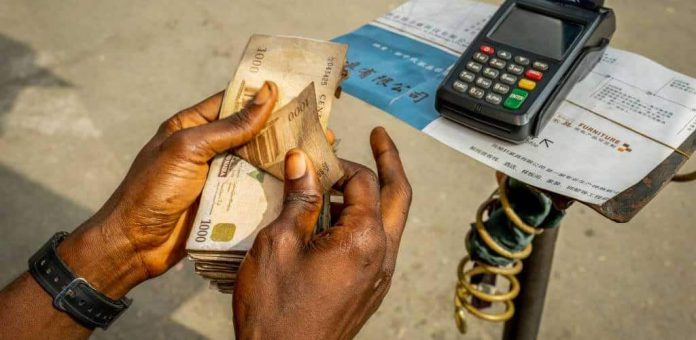According to Nigeria Interbank Settlement System (NIBSS), PoS volumes increased by 24.3% in the last year to 878.4 million from 706.8 million during the same time in 2021. It also stated that there were 1.1 million PoS terminals in Nigeria as of April this year, up dramatically from the 155,000 terminals there in 2017.
The maximum weekly limit for cash withdrawals by individuals and corporate organizations across all channels has been raised by the Central Bank of Nigeria (CBN) to N500,000 and N5 million, respectively. The change occurs two weeks after the CBN lowered the weekly over-the-counter cash withdrawal limits for individuals and business organizations to N100,000 and N500,000, respectively.
The Central Bank also limited daily withdrawals at point-of-sale terminals and automated teller machines (ATMs) to N20,000. His business will suffer as a result of the CBN policy.
The new over-the-counter (OTC) policy will negatively impact pos owners and will have a negative net impact. This will cause a lot of Pos owners to close their doors. The major effect that the new policy will have on Pos owners will be:
Pricing And Charges
Many Nigerians adore utilizing PoS since it is so affordable and inexpensive to use. Instead of dealing with the hassle of banks or ATMs, they may effortlessly withdraw as much as N100,000 or N200, 000 every day.
Due to the new regulation, pos owners who now charge N100–N200 for withdrawals of N10,000–N20,000 and N300–N400 for N20,000 would have to raise their fees, which will deter many Nigerians from using PoS terminals and result in losses.
Business Gains
Pos owners’ main complaint is that the new policy would lower their transaction commissions. In order to hide their mistake, they will either need to increase the fees for transactions or encourage more individuals to use the terminals. There was no transaction withdrawal restriction for PoS transactions prior to the release of the new withdrawal limitations, which are applicable nationally from January 9, 2023.
According to him, the policy’s adoption will result in a sharp decline in POS transaction earnings and sales. Alternately, we may observe some of them executing transactions through electronic channels.
However, The CBN spoke about the advantages of mobile money. They claimed that it offers high levels of market penetration in many low- and middle-income economies, transactions are conducted with little physical contact, and it is widely used by the unbanked and underbanked, making it a crucial way for the most vulnerable segments of the population to access financial services.
Unavailability Of Cash
Pos Operators also complained about the new CBN policy limiting the amount of cash that they have with them, which will in turn limit the amount of customers they will be able to reach in a day. A Pos Operator in Ajao Estate, Mrs Anabuike said that ” The Policy will affect me from withdrawing my usual 500, thousand, 400 thousand or 300 thousand, so if they limit me from collecting that amount, I wont have the cash to give to the people, which will revert them back to collecting money from the ATM Machines”.
Another Pos Operator Juliet , Said ” I dont know if the banks will do another method of transaction when this policy happens, because collecting large sums of money is the only way we make money from this business, Unless the banks change the setting to match the policy of the CBN”. She also stated that “A lot of people will have to stop this Pos Business due to this new policy, which we use to feed ourselves and our families, Something has to be done about it”.
















